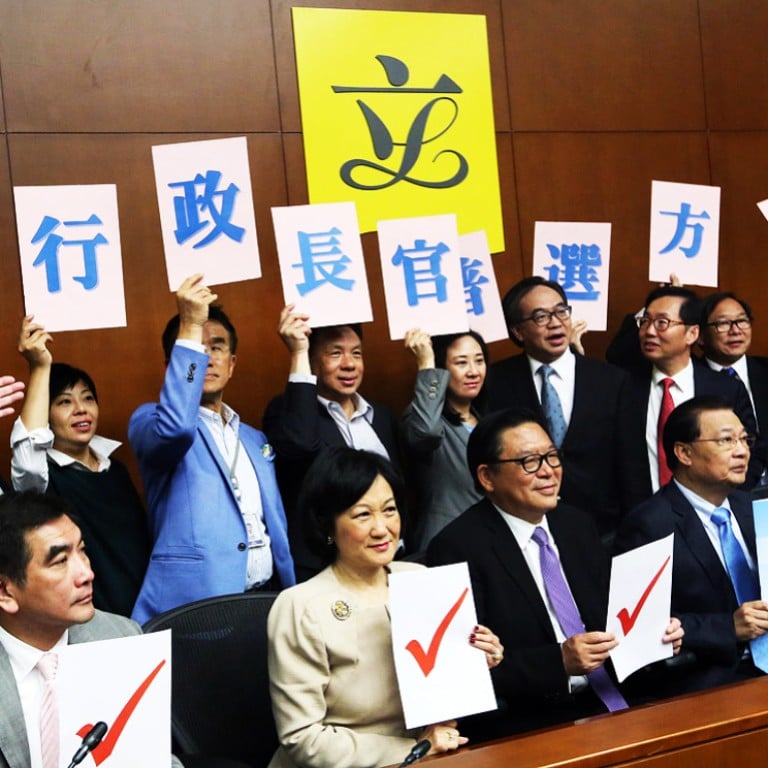
Hong Kong political reform battle will hit the streets, both camps say
The battle to win over the public is set to heat up, as opponents and supporters of the government's package for the 2017 chief executive poll put maximum effort into reaching out to Hongkongers over the next two months.
The battle to win over the public is set to heat up, as opponents and supporters of the government's package for the 2017 chief executive poll put maximum effort into reaching out to Hongkongers over the next two months.
On Saturday, top government officials will launch a citywide publicity campaign, handing out leaflets and joining bus tours. Leaders of the Beijing-loyalist camp said they might coordinate their efforts to mobilise the public with those of the government.
The publicity blitz will resemble the "Act Now" street campaign for a previous round of electoral reform in 2010.
On Sunday, pan-democrats - who have vowed to vote down the proposal when it goes to the Legislative Council in summer - will launch a campaign to counter the government's efforts. Joshua Wong Chi-fung, convenor of student activist group Scholarism, said his group planned to protest when officials met the public.
With Chief Secretary Carrie Lam Cheng Yuet-ngor pledging to "spare no effort" to seek public support, all eyes will be on a rolling poll by three universities that will be updated every Tuesday. Pollsters from the University of Hong Kong, Chinese University and Polytechnic University say the poll will offer a real-time indicator of Hongkongers' views right up until the eve of the Legco vote.
"We will follow the poll results closely," Lam said yesterday. "We will not be taking a confrontational approach. We will continue our lobbying efforts and ask them [pan-democrats] under what conditions they would support the electoral reform."
Constitutional affairs chief Raymond Tam Chi-yuen stressed that the model could be amended after 2017, even though the goal of "implementing universal suffrage" had been achieved.
But Civic Party leader Alan Leong Kah-kit refuted that claim, pointing to Lam's earlier remark that approving the reform plan would fulfil the requirements of Article 45 of the Basic Law.
The much-debated clause sets out as its ultimate aim the "selection of the chief executive by universal suffrage".
Leong said the pan-democrats' street campaign would stress Lam's remark as it argued that approving the reform package would be the "the endgame" in the fight for democracy, and to remind people "where we came from since the 1980s".
Executive Council member Jeffrey Lam Kin-fung expressed concern that the failure of the reform plan would lead to deeper political conflict.
"People would think twice before they invested in Hong Kong," he warned as he became one of 41 out of 43 pro-establishment lawmakers to pledge support for reform.
But Carrie Lam cautioned against making "too many negative or pessimistic predictions on what would happen if the proposal is voted down".
And HKU legal scholar Professor Michael Davis criticised the government for rejecting "all efforts at compromise by their own supporters" to come up with a model that was "even worse than no surprise".
There remains one chance of dialogue between central government officials and pan-democrats. Civic Party lawmaker and barrister Dennis Kwok says he will convey the camp's views when he joins a Bar Association visit to Beijing on Monday.



